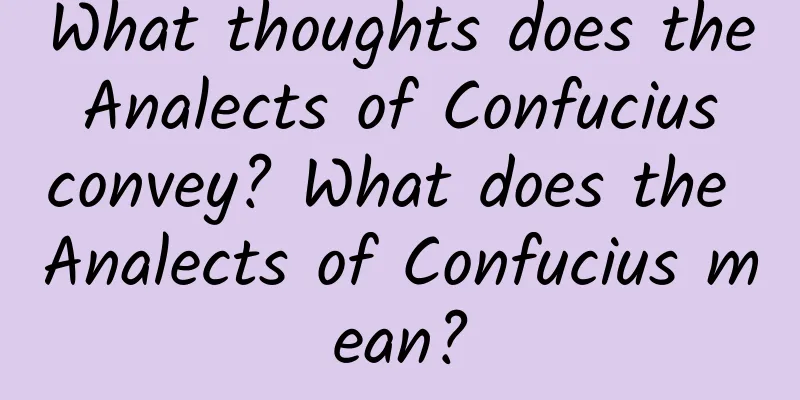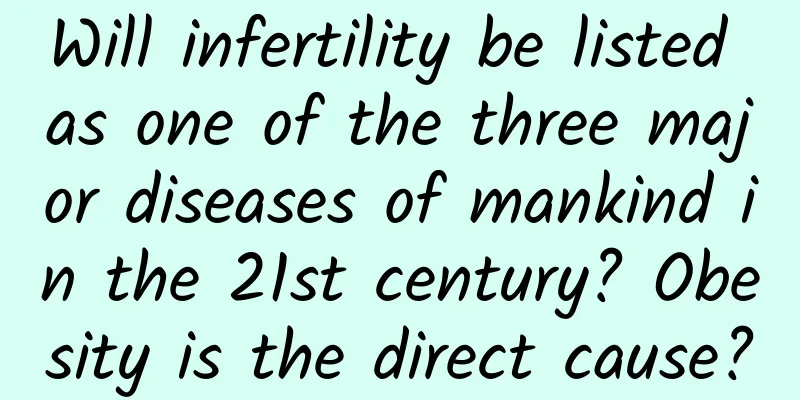What thoughts does the Analects of Confucius convey? What does the Analects of Confucius mean?

|
The Analects is a collection of prose in the form of quotations, mainly recording the words and deeds of Confucius and his disciples in the form of quotations and dialogues, which concentrates on Confucius' political, aesthetic, moral ethics and utilitarian values. So, what thoughts does the Analects convey about Confucius? What does the Analects mean when the mourning is over and the sorrow is over? Let's take a look at the introduction of Encyclopedia Knowledge Network to answer these questions! Contents of this article 1. What thoughts did the Analects convey? 2. What does "sorrow leads to sorrow and stops" mean in the Analects? 3. Classic sentences in the Analects 1What thoughts does the Analects convey?The Analects is an important work of the Confucian school. It records the words and deeds of Confucius and his disciples in the form of quotations, and often conveys Confucius' political thoughts, ethical concepts, life insights and insights into education in just a few words. The core of Confucius' thought recorded in the Analects is benevolence. "If a man has no benevolence, what is the use of ritual? If a man has no benevolence, what is the use of music?" The concept of benevolence is based on the love that is different between the elders and the young, the noble and the humble, and the relatives and the strangers in the family. This love is embodied in the moral etiquette of filial piety, loyalty and trustworthiness, and the order of the ruler-ruler, the minister-minister, the father-father, and the son-son. In politics, Confucius believed that the people were the most important, followed by the social order, and the king was the least important. He first had to make the people prosperous and gain their trust. He also emphasized that one must first rectify one's name before doing things. If the name is not righteous, then the words will not flow smoothly; if the words are not flowing smoothly, then things will not be accomplished; if things are not accomplished, then rituals and music will not flourish; if rituals and music do not flourish, then punishments will not be appropriate; if punishments are not appropriate, then the people will be at a loss. The Analects also records Confucius' attitude and methods towards education and learning, such as "When three people walk together, there must be one who can be my teacher", "There is no distinction in teaching", "When I know, I know; when I don't know, I don't know", "If you study without thinking, you will be in vain; if you think without studying, you will be in danger", etc. 2What does "sorrow leads to sorrow and ends" mean in the Analects?Meaning: It means that Ziyou said: "In mourning, it is enough to fully express grief." It emphasizes that mourning must be moderate. "丧致乎" sentence: This sentence contains two meanings: one is that in mourning, there is still grief, but no complicated rituals and decorations. The other is that since you have mourned, you should stop, and not mourn too much to the point of destroying your body and soul. "丧" refers to the period of mourning for a direct relative. 3Classic sentences from the Analects1. Zengzi said: A scholar must be broad-minded and resolute, for the responsibility is heavy and the road is long. Is it not a heavy responsibility to take benevolence as one's own responsibility? Is it not a long way to go until death? 2. Confucius said: Do not look at what is not proper, do not listen to what is not proper, do not say what is not proper, and do not do what is not proper. 3. Confucius said: "Is it not a pleasure to learn and practice what one has learned? Is it not a pleasure to have friends coming from afar? Is it not a gentleman to not be angry when people do not know you?" 4. Confucius said: I have tried not to eat or sleep all day long in order to think, but it is of no use. It is better to study. 5. Confucius said: When you see a virtuous person, you should aspire to be like him; when you see an unvirtuous person, you should reflect on yourself. |
<<: When was the Analects written? How many characters are there in the Analects?
>>: How do you evaluate the Analects? What do the two words "lun" and "yu" in the Analects mean?
Recommend
Can I eat spring rolls during my period?
Generally speaking, women will be more irritable ...
What to do if you are pregnant with moderate inflammation of TCT
Moderate inflammation of TCT mainly refers to an ...
How long does it take to have a normal birth?
Many friends want to know how long it takes to re...
Is it normal to have a heavy menstrual flow for the first time after giving birth?
After a woman becomes pregnant, she will not have...
The initial symptoms of milk blockage
One of the happy things that every mother must ex...
Are breast implants permanent?
There are many methods of breast augmentation. Im...
Can female uterine coldness cause infertility?
Female friends need to be vigilant about the prob...
Under what circumstances will ovulation be early
Only when women have normal and healthy ovulation...
What does the placenta supplement? So nutritious
The placenta is very rich in nutrients, so it can...
What to do if pregnant women have too many white blood cells
Perhaps due to incomplete information, in our imp...
What is the discharge from medical abortion?
As long as women have a normal sexual life, they ...
Pay attention to fever after drug treatment - drug fever
Fever, also known as "fever", is a symp...
Menstrual period is scanty, dark, and contains blood residue
During the menstrual period, whether the menstrua...
What are the issues that need to be paid attention to when soaking your feet in mugwort leaves during pregnancy?
What are the things you need to pay attention to ...
Can I breastfeed if I have a cold during my lactation period?
If you ask breastfeeding mothers what they worry ...









